The Prince of Wales: France reacts to Geraint Thomas' Tour de France win
'The problem in cycling isn't doping anymore, it's money'
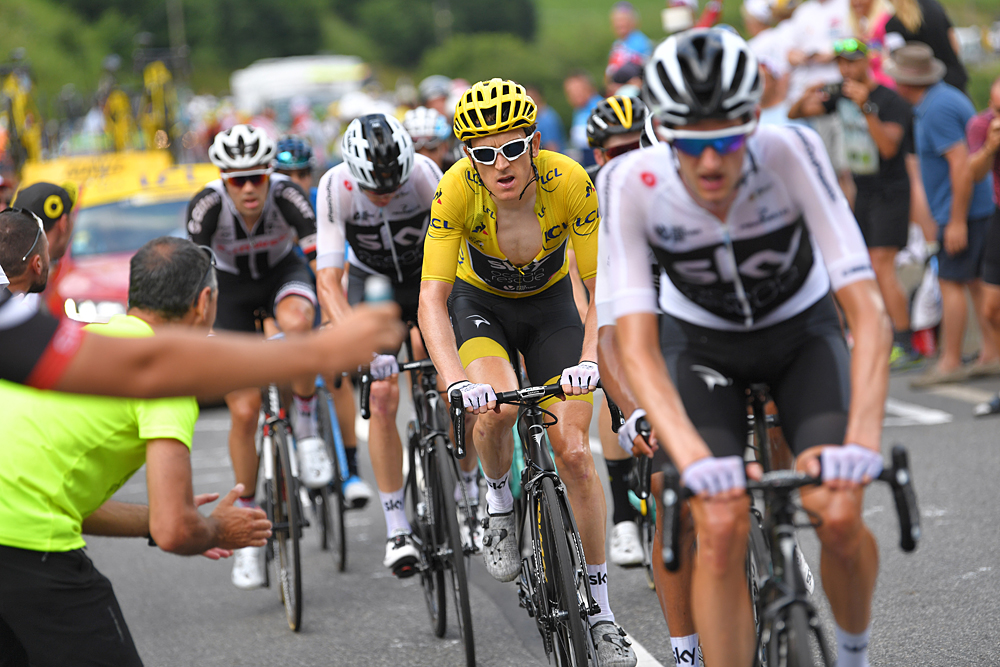
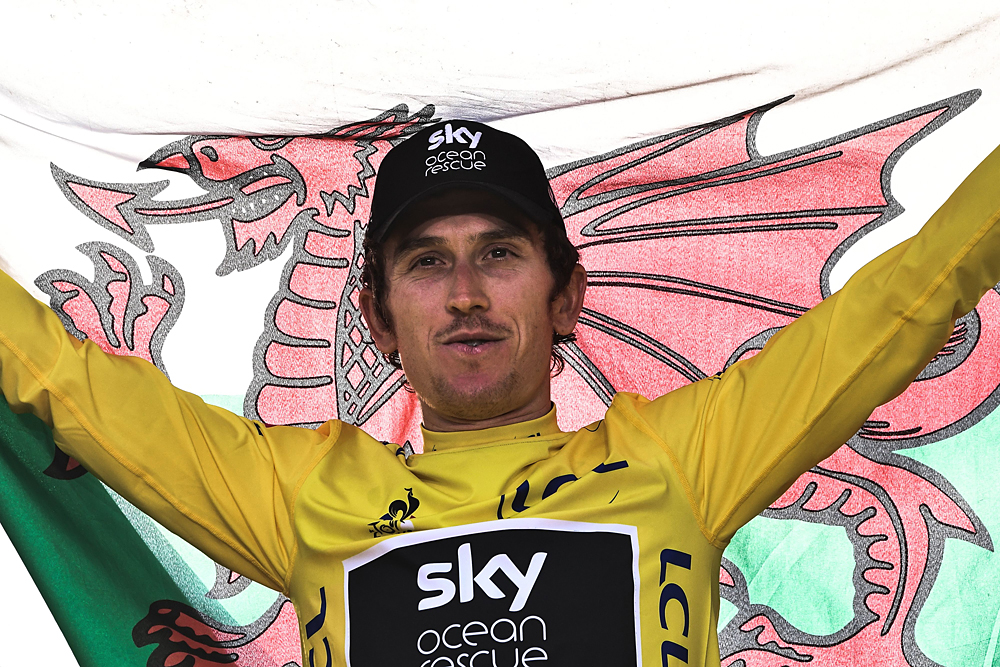
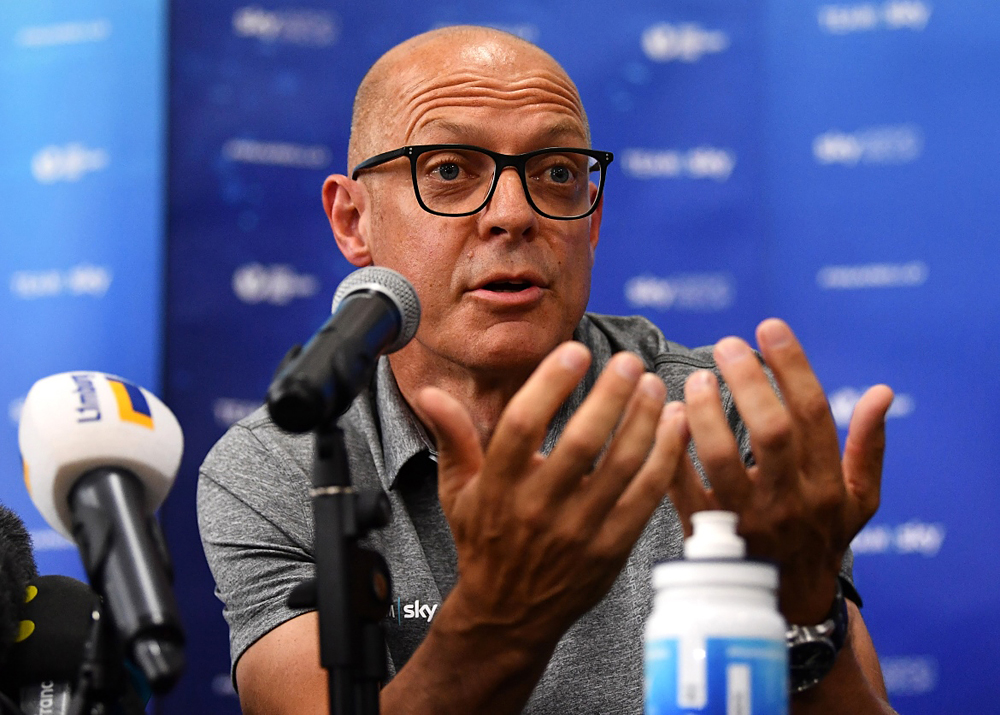
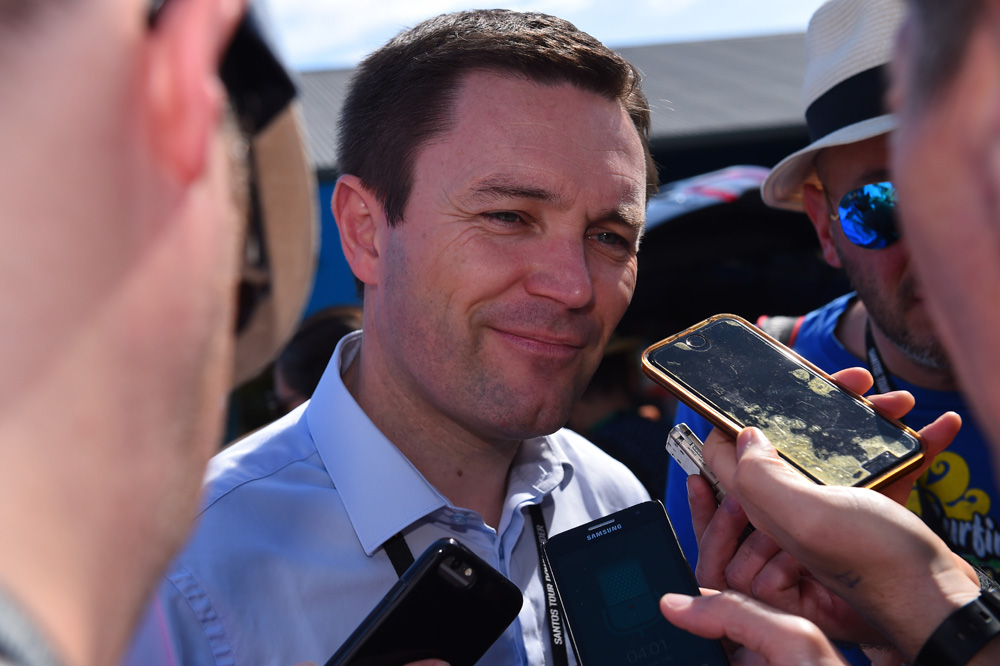
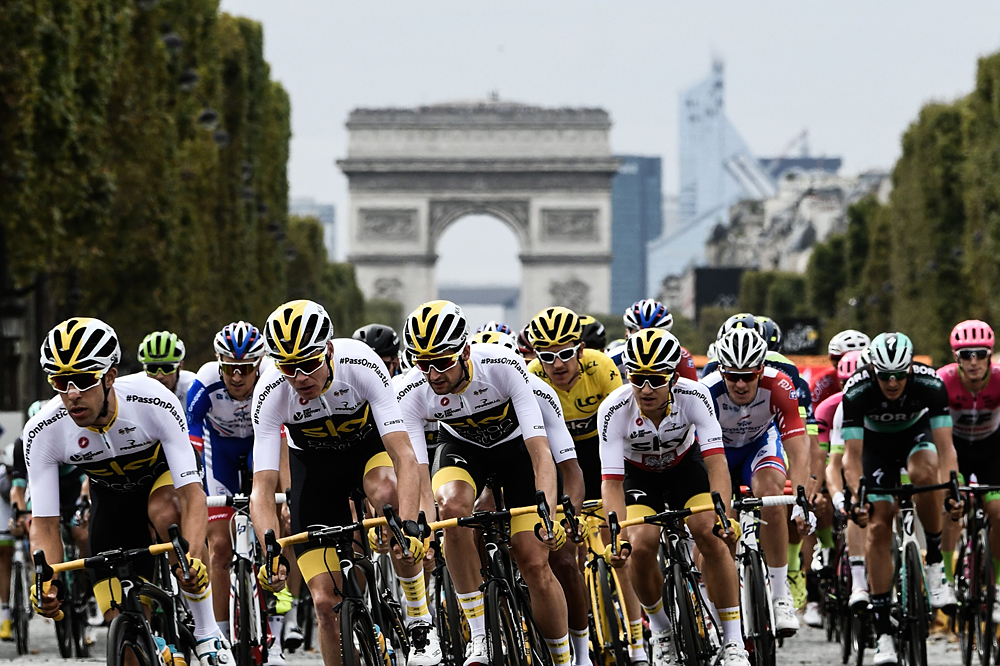
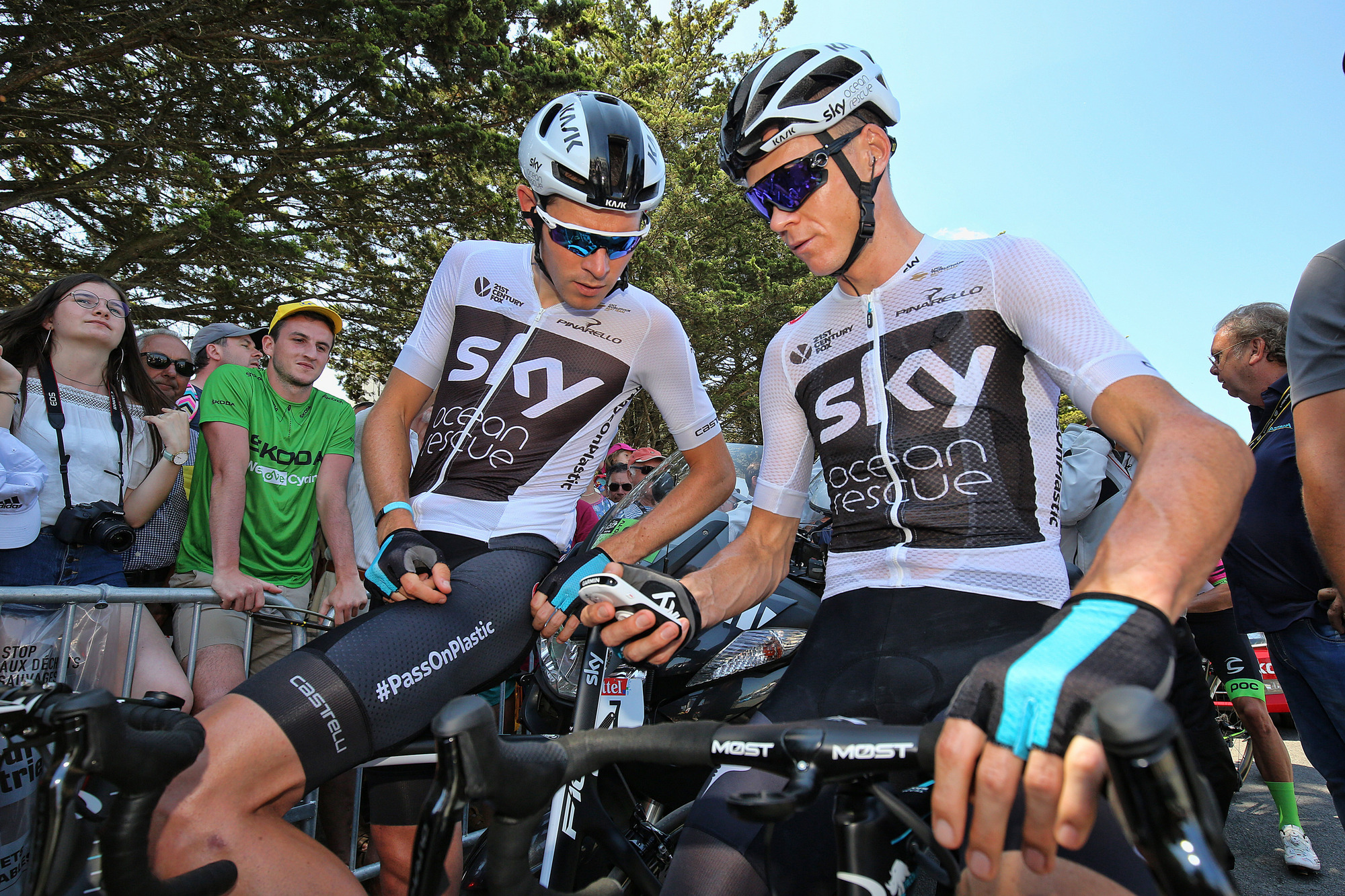
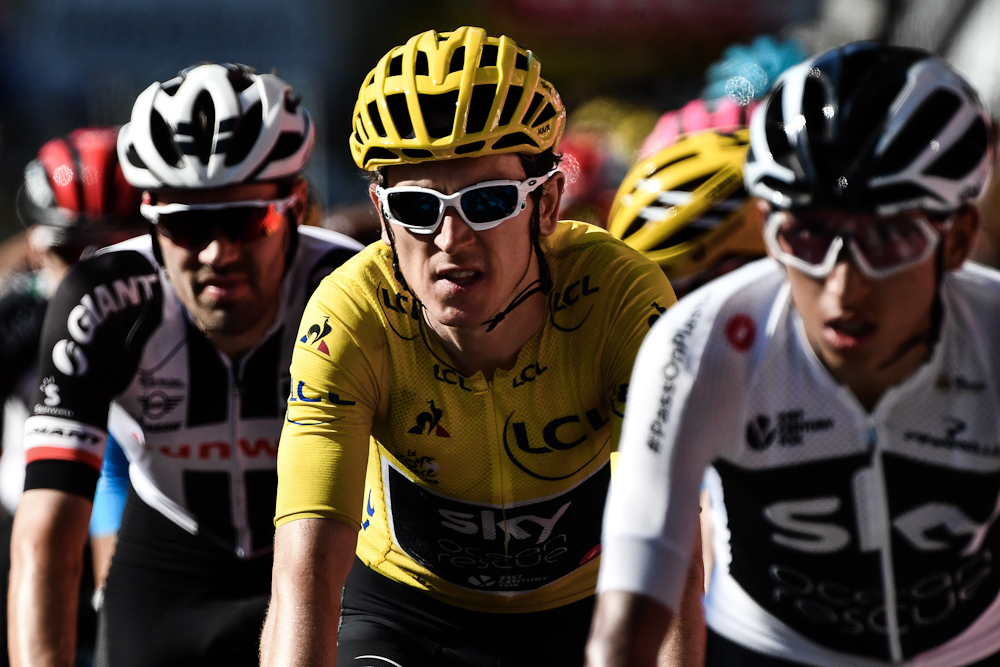
The unease at Team Sky’s ongoing dominance of the Tour de France was balanced by measured praise for Geraint Thomas’ overall victory and friendly attitude in the French written press on Monday morning.
L’Équipe placed a photograph of Thomas atop the podium on its front page, beneath the banner headline, ‘Le Prince de Galles’ – the ‘Prince of Wales’ – though its leading article carried a rebuke of the behaviour of another Welshman bearing a lofty title, Team Sky manager Dave Brailsford, and UCI president David Lappartient.
This year's Tour de France set out from the Vendée amid the fall-out of Chris Froome’s salbutamol case, and Brailsford’s inflammatory comments during the race – he derided Lappartient’s ‘French mayor mentality’ and suggested spitting at riders was 'a French cultural thing’. It did little to ease his riders’ passage around France.
“In any case, one can regret that David Lappartient and Dave Brailsford behaved like two yapping dogs who met on a pavement, sniffed each other’s behinds and barked over one another via the press,” wrote L’Équipe.
L’Équipe also decried the behaviour of some roadside spectators on this Tour. On Alpe d’Huez alone, a spectator stepped into the road to try to hit Froome, while another ended the unfortunate Vincenzo Nibali’s Tour by causing him to crash. Thomas, the stage winner, was booed as he accepted the spoils on the podium.
“There has always been schoolboy behaviour on the Tour, but a line was crossed this year, that of violence, and that in part ruined the feast,” wrote L’Équipe, though the newspaper noted a more restrained reaction on the Champs-Élysées on Sunday.
“On the podium, Geraint Thomas was given an ovation and Chris Froome barely whistled. A sign of cooling off, finally.”
Get The Leadout Newsletter
The latest race content, interviews, features, reviews and expert buying guides, direct to your inbox!
The ‘Prince of Wales’ headline also featured inside Le Parisien, which highlighted Thomas’ popularity among his peers in the peloton. Julian Alaphilippe, UAE-Team Emirates directeur sportif Philippe Mauduit, Romain Bardet and Fortuneo-Vital Concept’s Kevin Ledanois all serve as references for the Welshman’s bonhomie.
“At first, he can seem a bit cold, but he isn’t at all,” says Ledanois. “He says hello to everybody, he’s a friendly maillot jaune. Some can act like stars but he’s a very down-to-earth guy. He’s respected by everybody.”
Monday’s edition of Le Monde carries a profile of Thomas, entitled ‘Le cyclist next door.’ As well as outlining Thomas’ upbringing in Cardiff and early years as a cyclist, the piece describes how the Team Sky rider, like his former teammate Bradley Wiggins, made the transition from track star to Tour de France winner via a striking loss of weight.
“The two men underwent the same process of transformation: two athletes with exceptional physical capacities who thinned down to be able to apply this power in the mountains,” writes Le Monde.
Le Monde adds that the same process proved beyond Chris Boardman and Bradley McGee in yesteryear and reminds readers that the British Parliamentary Select Committee report published in March had expressed concern at the methodology applied by Team Sky to pare down its riders’ weight.
Money as the new doping
Thomas is the third Team Sky rider to win the Tour de France, and the team has now claimed six of the past seven editions of the race.
L’Humanité compared Brailsford’s achievement of managing three different Tour winners to that of Cyrille Guimard, who won a total of seven Tours with three different riders: Lucien Van Impe (1976), Bernard Hinault (1978, 1979, 1981, 1982) and Laurent Fignon (1983 and 1984).
“An exploit worthy of the cycling pantheon,” writes L’Humanité, albeit with a caveat based on the size of its budget: “Lucien Van Impe, Bernard Hinault and Laurent Fignon marked the history of their sport; Bradley Wiggins, Chris Froome and Geraint Thomas are only fortifying the history of Sky.”
It is a theme explored with greater depth and nuance by Libération, which provides the most considered assessment of the 2018 Tour and the current health of the great bike race.
As the newspaper points out, this year’s event set out from the Vendée marked by a combination of “disillusioned anger” from fans and “glacial indifference” from the general public following the Froome case, and it reached Paris with an ending that could have been written in advance: “That of a boring Team Sky, suspect because of its domination, which wins the Tour for the sixth time in seven years.”
The 2018 Tour de France, Libé continues, has left a “profound feeling of lassitude” and it points out that the novelties proposed by ASO – the 65km mountain stage, the cobbles, the reduction in team size – did little to shake the event from its torpor.
The newspapers recounts how, in the winter of 2012, the UCI’s athletes’ commission (which included Marianne Vos, Bernhard Eisel and Dario Cioni – “At first glance, not hardline Marxists”) met in Aigle and agreed on the necessity of a more equitable division of wealth in professional cycling. Among the ideas floated was a salary cap for teams, but nothing came of it.
“Six years on, the distribution of the booty has gotten worse. The gap between the means of teams has exploded: Fortuneo-Samsic had €3.5 million in 2017, Sky at least ten times more,” writes Libération, while “the shareholders of ASO refuse to give up a cent.”
One unnamed French directeur sportif outlined to Libération how a salary cap would mean a team like Sky would no longer be able to support its leaders with some of the strongest climbers in the peloton, and thus – at least in theory – help to create more open racing. “The problem in cycling isn’t doping anymore,” he said. “It’s money.”

Barry Ryan was Head of Features at Cyclingnews. He has covered professional cycling since 2010, reporting from the Tour de France, Giro d’Italia and events from Argentina to Japan. His writing has appeared in The Independent, Procycling and Cycling Plus. He is the author of The Ascent: Sean Kelly, Stephen Roche and the Rise of Irish Cycling’s Golden Generation, published by Gill Books.